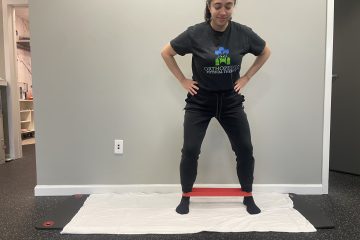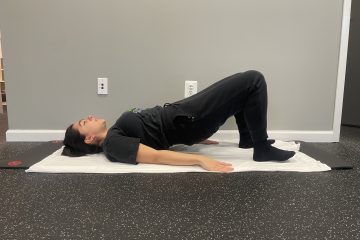Interstitial Cystitis, sometimes called painful bladder syndrome, is characterized by lesions on the bladder. True Interstitial Cystitis, IC for short, can only be diagnosed by having the bladder scoped to confirm the presence of these tell-tale lesions. Oftentimes, urologists will diagnose someone with IC based on their symptoms without actually scoping to confirm whether or not it truly is IC.
People with IC often report:
- Urinary frequency
- Urinary urgency
- Pain like a UTI
Patients often state that they repeatedly go to the doctor to report UTI or yeast infection

Many forms of pelvic floor dysfunction actually mimic the symptoms of IC which is where the waters get muddy.-like symptoms but cultures come back clean, and no matter how many rounds of antibiotics they go on, symptoms do not subside. Typically, as pelvic health specialists, when we hear these symptoms, we know it is much more likely the pelvic floor causing these issues than interstitial cystitis.
So what happens to the pelvic floor to cause these symptoms of urinary urgency, frequency, and pain?
Tightness of the pelvic floor can put pressure on the bladder, causing the bladder to spasm. Over time, the pressure and spasms can irritate the bladder, leading to urgency, frequency, and pain. Additionally, a very counterproductive route many individuals take is that of lessening water intake in an attempt to decrease urinary frequency. This does not result in fewer bathroom visits but actually acts to increase the acidity in urine, irritating the lining of the bladder, and actually increasing pain, urgency, and frequency. (It is very important to hydrate appropriately, not under or over-hydrate).
Whether it truly is IC or whether it is other pelvic floor issues, the treatment is largely the same. The biggest difference is that whereas pelvic floor dysfunction can typically be treated with our standard 12-week care plan (learn more about our LSR method here), IC is a chronic condition that requires more maintenance and check-ins as needed. Additionally, patients who do have IC may require a collaborative approach to care between the pelvic health specialists (us) and a pelvic pain specialist doctor for additional pain management.
Typical treatment at Pelvic Health PT includes:
- Pelvic floor lengthening
- Abdominal lengthening (greatly relieves pressure on the bladder)
- Reducing bladder irritants
- Adding supplementation to calm the bladder
- Adjusting water intake
- Training a dynamic, pliable pelvic floor
How does this sound to you? Are you ready to stop putting a bandaid on your issues and instead get to the root of the problem?
If you are dealing with IC or IC-like symptoms, or another nagging pain or injury that just won’t go away, book a FREE 10-minute consult call today. We know we can help you ✨
Be empowered in education,
OrthoPelvic Physical Therapy


